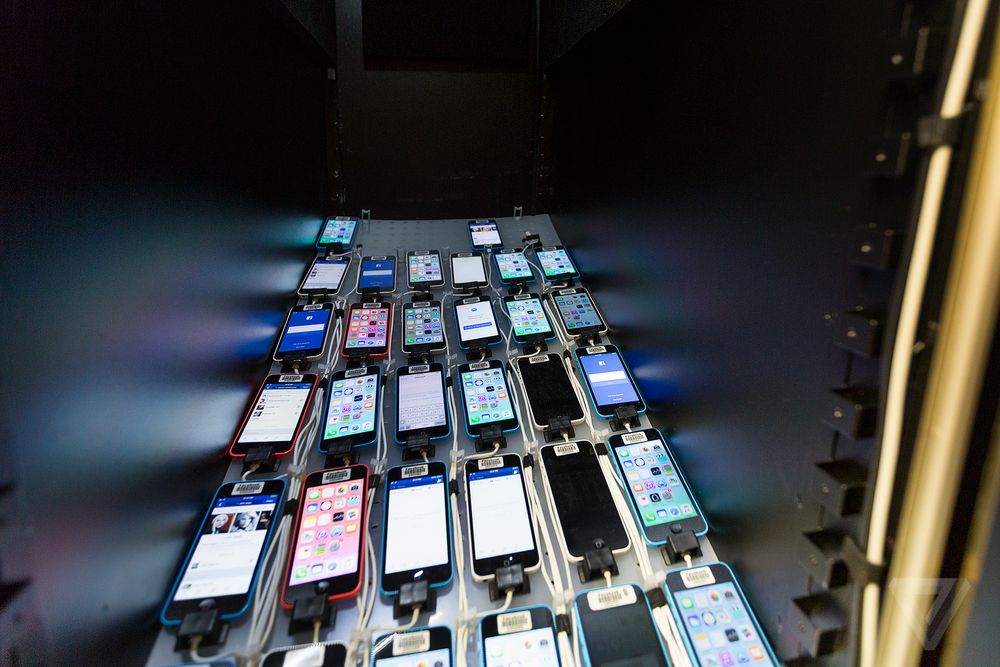Affiliate links on Android Authority may earn us a commission. Learn more.
If you think Facebook is a battery hog, check out how much work they put into performance testing
Published onJuly 13, 2016

If you think Facebook’s mobile app is a battery hog, you might be surprised to learn exactly how much work the social giant is putting into battery and performance optimization. For most developers, testing their smartphone app on a handful of key devices is generally more than enough rigor to ensure that user experience will be by-and-large acceptable. But since Facebook is one of the most widely used services in the world, their testing process is a bit more complex.
Did I say a bit more complex? I meant several orders of magnitude more complex. Enter Facebook’s Mobile Device Lab. It’s an entire facility dedicated to endlessly test Facebook’s mobile apps on an ever-growing legion of older smartphones.

Located in a vast facility of Prineville, OR, this lab has something in the ballpark of 2,000 different smartphones, all running Facebook apps. Whenever developers create a new version of an app, they upload test versions to all of these smartphones. These devices are then rigorously tested to see if there is any dip in performance or battery life.
Antoine Reversat, a member of the production engineering team, explains that even a single line of code can produce regression on some devices, but not others. Because of this, Facebook has thrown a lot of weight into regression analysis. Since much of the developing world is using smartphones that are two or three years old, and these devices represent a massive userbase.
this lab has something in the ballpark of 2,000 different smartphones.
It’s true that whole companies exist to perform the kind of testing that Facebook is doing here, but the social giant prefers to keep their analysis in-house. Although many testing utilities use software emulation to check a slew of different devices on a single computer, Facebook has opted for on-device testing. “We wouldn’t be able to track down a 1 percent performance regression in a simulator,” says Reversat, indicating that such a drop would be sufficient cause for concern.
As the number of different devices on the market continues to explode, Facebook anticipates a correlating growth in their testing center. Currently devices are organized on 60 server racks, each capable of housing 32 smartphones. Plans are already in the works to expand that capacity of each rack to 64 devices.
In spite of all this testing, Facebook is still widely regarded as a notorious battery hog, and even users of more recent smartphones have been hopping to alternatives like Swipe. What do you think of Facebook’s substantial testing facilities for older smartphones? A waste of resources or a necessary undertaking? Give us your feedback in the comments below!